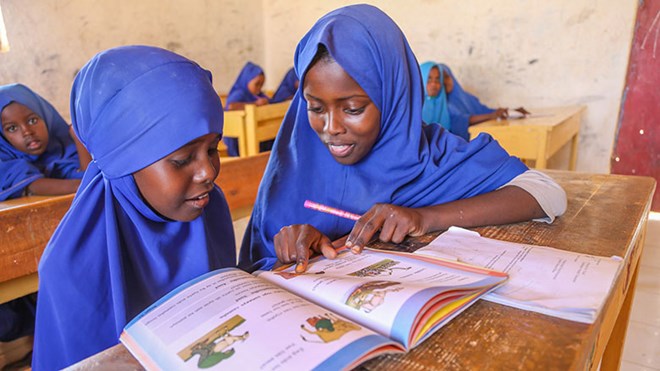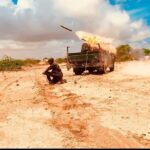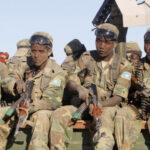The U.S. Embassy, through the U.S. Agency for International Development (USAID), is proud to announce the Stabilization through Education Program (STEP) to increase access to education in communities affected by conflict.
STEP is a $6.8 million initiative that will be implemented through the International Organization for Migration (IOM). Over the next 18 months, IOM will work with communities to rehabilitate more than 200 damaged classrooms and related school infrastructure, including boundary walls, latrines, and water systems. These efforts will support Somalia’s newly established Education Sector Strategic Plan (ESSP) for 2022-2026.
This latest announcement brings USAID’s ongoing investments in education in Somalia to nearly $71 million. USAID also supports the Bar ama Baro (“Teach or Learn”) accelerated basic education program and contributes to the United Kingdom’s Foreign, Commonwealth, and Development Office’s Adolescent Girls Education in Somalia Program. USAID’s education initiatives will reach more than 160,000 children over the next three years.
U.S. Ambassador to Somalia Larry E. André, Jr., said, “Investment in education is essential for Somalia’s revival. Education is a powerful driver of economic development and one of the strongest instruments to reduce poverty and improve health outcomes, gender equality, and long-term stability.”
STEP will target communities with limited access to education in hard-to-reach and remote areas, bring communities together to develop community-based education plans, and rehabilitate or construct classrooms and school infrastructure.
Minister of Education, Culture, and Higher Education Abdullahi AbukarHaji stated,”As Somalia embarks on the journey of state-building and reviving its institutions, the Ministry of Education, Culture, and Higher Education is at the heart of promoting peace and prosperity. The ESSP reflects the priorities of the Somali government, which seeks to deliver educational services throughout the country.”
IOM Somalia Chief of Mission Frantz Celestin added, “After several years working closely with local authorities to enhance stability, it is with great enthusiasm that IOM is supporting the Ministry of Education and USAID’s Bar ama Baro program to broaden access to primary education. This collaboration is made possible by communities and authorities working together in confidence to build a brighter future for the next generation. IOM is honored to be part of this effort.”
In alignment with the ESSP, the United States will continue to work with the Ministry of Education, Culture, and Higher Education and Federal Member States’ Ministries of Education to provide educational opportunities to out-of-school children; those who are marginalized; and populations displaced by drought, conflict, and insecurity to build a strong, equitable education system.





